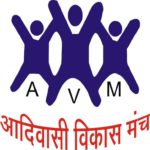Adivasi Vikas Manch (AVM) was formed in 1993 by the Adivasis of Kotra block, Udaipur District, Rajasthan, India to address various issues in the region specifically related to Adivasis*.
Kotra comes under Schedule 5 of the Indian Constitution and therefore, Panchayati Raj Extension to Scheduled Areas (PESA) is applicable in the region. PESA calls for participation of the Adivasi population in development of the villages to minimise their exploitation.
AVM is a collective that works to strengthen the Gram Sabha under PESA. Gram Sabha is a body where all the people registered in the electoral rolls find a space to talk with their elected representatives at the pacnhayat level. Under PESA, Gram Sabha has absolute power to take several decisions on various issues keeping the Adivasi culture alive. Apart from this, the collective also works to increase political participation of Adivasi women along with their representation in Panchayati Raj systems, ensure efficient enactment of Forest Rights Act and works with migrant labourers and their families. AVM also does capacity building work with women to contest Panchayati Raj elections, to strengthen the position of Adivasi women and build their leadership.
The collective uses multiple strategies in their work amidst various challenges, such as increased interventions of political parties in the form of polarisation amongst candidates or excess inflow of funds, deep seated gender biases, and prevalence of Pati Sarpanch (husband being the head instead of the woman).
* Adivasis are often defined as “tribals” by the state. The political category of tribe, however, carries the burden of colonialism within itself. Tribe was used as a descriptor to define adivasis in India by the British and it is still being continued. Therefore, the usage of the word tribe has often been challenged by various adivasi activists and scholars.
